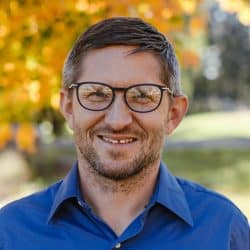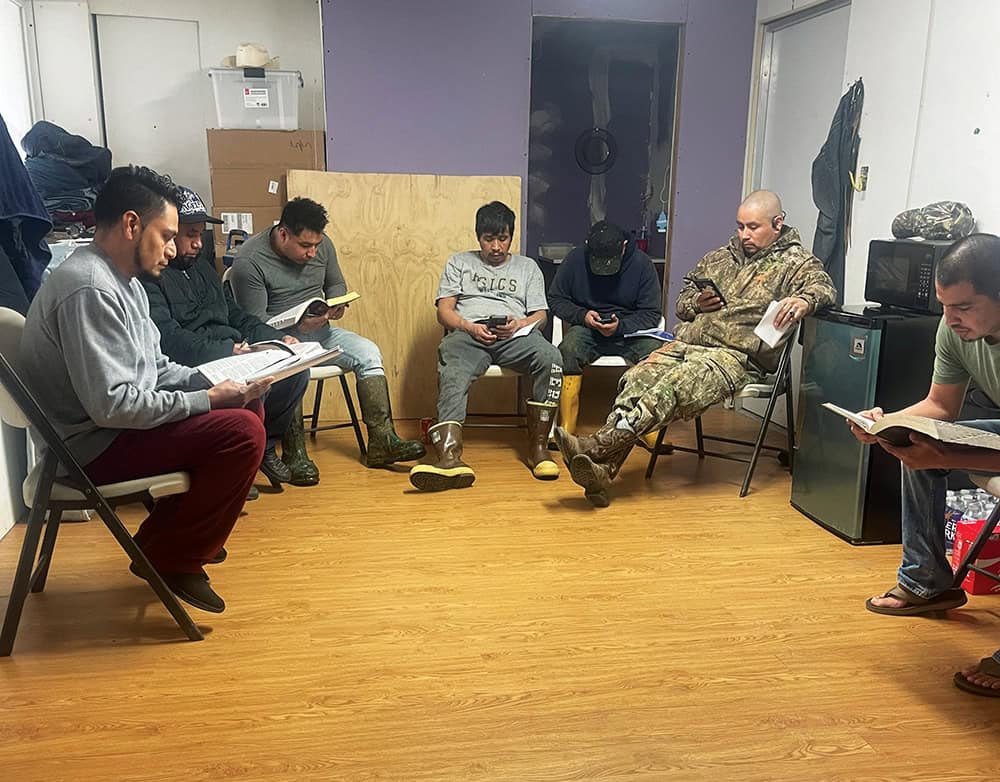Ministry in the Marketplace
VMMissions equips believers for ministry in their places of work with coaching, accountability, and a network of support.

During my middle school years, my family dismantled a 100-year-old barn and rebuilt it as a home and guest house.
I was homeschooled during that extended construction project, and while I don’t remember much book learning in that season, it was an enduring education, an experience that profoundly shaped my understanding of and appreciation for the gift of work. As my parents welcome guests from all over the world to their home, they continue to minister through this place of work that was created through labor.
Patrick Lay describes the biblical vision of labor as workship in his book by the same title, building a theology of work as worship from the Hebrew word avoda, which is variously translated in English as work, worship, or service depending on the context. When we properly understand work as a gift from God and the context where we can glorify God, the relationships formed there become a crucible of our daily discipleship to Jesus: becoming like him, saying the things he said, doing the things he did.
The biblical vision of work notwithstanding, the Church has, for much of its history, promoted the disparate categories of “sacred” and “secular” in relation to many aspects of daily life. The perception that roles in church structures or missions contexts far from home are more spiritual has harmed both the Church and God’s mission in the world.

One hears echoes of this attitude in the idealization of “full-time ministry” which usually excludes ministry through marketplace employment. To be clear, the Church has always called people to different kinds of dedicated work in the kingdom, and some of these roles require flexibility and availability that not all professions offer, but all work that glorifies God is equally sacred.
Anabaptists have been spared at least some of the excesses of the false dichotomy of the sacred/secular divide because of their emphasis on the priesthood of all believers in daily life. In this view, all Christians are intermediaries of God’s work through Christ and those separated from God. Far from triumphalistic, this identity is shaped by the reminder that we received grace “while we were still God’s enemies” (Rom. 5:10) and follows the pattern of the incarnation in which Christ “made himself nothing, taking on the very nature of a servant” (Phil. 2:7).
We are called to be ambassadors of the gospel whether that be in our hometown and first language or as one sent to cross barriers of culture and language where the church is not yet.
Even as Anabaptists have recognized vocational (“called out”) roles of leadership in local congregations and cross-cultural missions, they have maintained a strong emphasis on the holiness of a variety of combinations of labor, sometimes referred to as bi- or co-vocational ministry in several spheres of work both inside and beyond church structures. While the specifics differ as to how individual believers earn a living, all Christians are called to daily live their discipleship to Jesus and vocational identity as members of Christ’s ekklesia, a people called out of the world and sent back into it as priests of God’s reconciling work through Christ.
Several factors inform VMMissions’ emphasis on equipping believers for marketplace ministry. Jesus commissions his followers in Matthew 28 to “go and make disciples of all peoples.” As we read the story of the New Testament we see disciple-making, this most basic building block of the church, occurring primarily in the contexts of daily work, not in worship gatherings. The women gathered for prayer with Lydia by the river in Acts 16 likely composed a Roman oikos, extended households that included biological family and networks of work relationships. Ministry team Priscilla and Aquila mentored Paul early in his walk with Jesus through the context of daily work.
Additionally, most churches, globally speaking, have co-vocational leaders. As VMMissions partners with churches—in the U.S. and around the world—in disciple-making and the formation of churches that grow as these disciples of Jesus gather, we learn from the sustainable patterns of ministry in these contexts.
In places where there are few believers, ambassadors of the gospel who work in professional or entrepreneurial contexts also naturally model rhythms of daily work, disciple-making, and rest similar to patterns realistic for most believers and the co-vocational leaders of the churches that emerge. It’s also important to note that most cross-cultural ambassadors of the gospel are sent not from North America but by churches of the global south to near neighbors.

Photo courtesy of Jay (name changed)
Furthermore, in areas of the world with barriers to the spread of the gospel, and where public sharing is often restricted, natural opportunities for daily discipleship spring from professional and trade roles. One-third of the world’s population lives in these regions where few or no expressions of church exist. These people will never meet a Christian in their lifetime unless a near neighbor or someone sent from afar crosses cultural boundaries as an ambassador of the good news.
VMMissions seeks to equip believers to live out their faith in every sphere of life, including places of employment.
Properly understood, our labor is an offering, our work an altar in the world. John Chrysostom, the fourth-century “golden-tongued” preacher and bishop of Constantinople, said, “Our spirit should be quick to reach out toward God, not only when it is engaged in meditation; at other times also, when it is carrying out its duties, caring for the needy, performing works of charity, or giving generously in the service of others. Our spirit should long for God and call him to mind, so that these works may be seasoned with the salt of God’s love, and so make a palatable offering to the Lord of the universe.”
In this spirit, VMMissions seeks to support and equip believers to live out their faith in every sphere of life, including places of employment. We are called to be ambassadors of the gospel whether that be in our hometown and first language or as one sent to cross barriers of culture and language where the church is not yet.
Jason Rhodes Showalter is the VMMissions Global Ministries Director.
